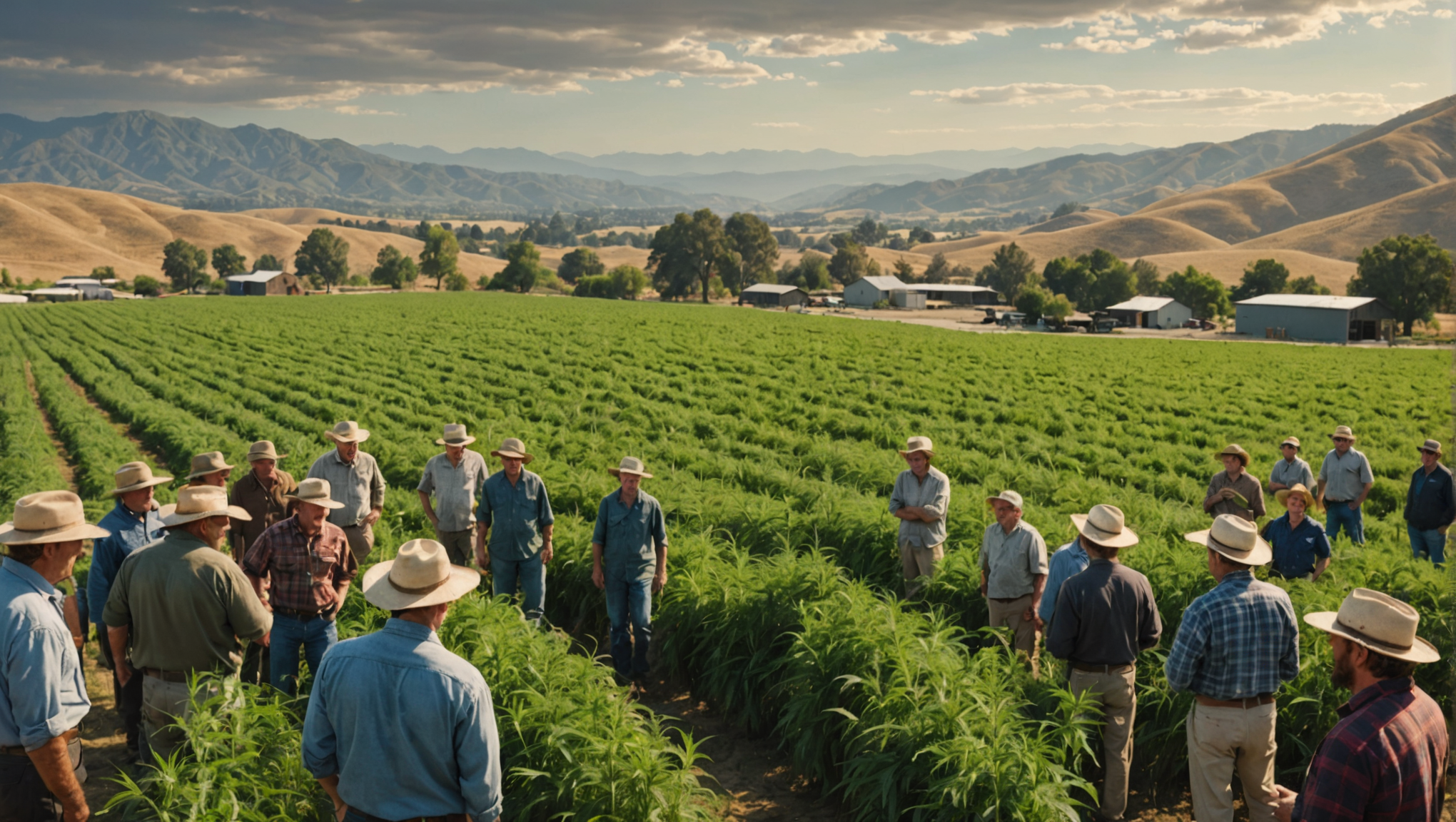California, under a state of emergency, recently imposed a draconian ban on all levels of THC in products derived from hemp. This measure sparks a lively debate within the industry, which questions the real motivations behind this decision. While many players in the sector contest this regulation, arguing that it could have disastrous consequences on the market, the authorities say they are acting out of concern for protection, especially for young consumers. This new episode raises questions about the balance between regulation and innovation within a booming sector.
California recently implemented a emergency regulations prohibiting the presence of THC in all products based on hemp. Authorities say this measure aims to protect public health, particularly of young people, by banning products displaying detectable levels of THC, even in those based on CBD non-intoxicating. However, the hemp industry contests this decision, arguing that the justification for the emergency is not based on solid foundations, calling into question the evolution of the laws on these products since their legalization. This ban could therefore have significant repercussions on the Californian hemp market.

Under state of emergency, California bans all THC in hemp products
On October 3, 2024, California declared a emergency regulations which bans all hemp products containing detectable levels of THC. This decision, motivated by a desire to protect young people and reduce exposure to psychoactive substances, significantly impacts the hemp industry. Approximately 90 to 95% of products currently available on the market, including those based on CBD non-intoxicating, find themselves affected by this new measure, raising questions among players in the sector.
the implications of this ban on the hemp industry
The reaction to these regulations is strong and the industry contests the legitimacy of the actions taken by the state. California authorities say the majority of licensed retailers comply with this prohibition, but the hemp industry considers using emergency action to amend a pre-existing law passed in 2021 to be inappropriate. The debate focuses on the balance between public safety And entrepreneurship, highlighting the dilemma between consumer protection and supporting innovation in a growing market.
the future of hemp products in california
As California aims to more strictly regulate the cannabis sector, the situation could evolve even further with the planned opening of “coffee shops” dedicated to cannabis, planned for early 2025. This measure could provide a regulated consumption space, but it is once again called into question by the strict framework imposed on hemp-based products. Industry players are wondering: how to navigate this transition? And more crucially, what will be the economic consequences of these restrictions on the diversity of products offered to consumers?
Abaya : le Conseil d'État confirme son interdiction à l'école
— France Bleu (@francebleu) September 27, 2024
➡️ https://t.co/sCPGVYj5aP pic.twitter.com/qkZOybAe1Q
California’s recent decision to ban all hemp products containing detectable levels of THC sparked a wave of reactions within the hemp industry. Adopted as part of an emergency regulation, this measure aims to protect young people and remind people of the need for responsible consumption. However, such haste in banning raises questions about the appropriateness and effectiveness of this action.
Industry players are questioning the rationale for the move, which appears to be driven by the need to control potentially harmful products, free from any risk of poisoning. Yet, many argue that banning products made from CBD, judged to have no significant psychoactive effects, could have disastrous economic consequences, particularly for small producers and retailers.
Indeed, California has long been seen as a pioneer of cannabis policy reforms, with a more liberal approach compared to other states. Implementation of such regulation could set a harmful precedent, prompting further restrictions on products that have contributed to the diversification of wellness options. It could also hamper innovation and research in the field of hemp-derived products, a booming sector.
In this context, it is essential to conduct a constructive dialogue between Californian authorities and the industry. Balanced solutions could be explored, taking into account the public safety while preserving the economic interests of producers and supporting research into the potential benefits of hemp compounds.














